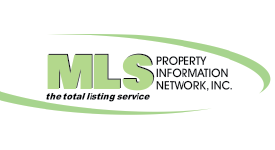
Photo by Evan Dvorkin on Unsplash
A conventional loan is the most common type of mortgage used to secure a home purchase. Conventional loans are backed by private lenders and typically conform to the standards established by Fannie Mae and Freddie Mac. In order to qualify for a conventional loan, you must meet several specific requirements.
1. Debt-to-income ratios.
In order to qualify for a conventional loan in a specific amount, you must meet the lender's established debt-to-income ratio requirements. This means that you must show that the ratio of your revolving monthly debts to your monthly income does not exceed a certain percentage.
2. Down payment.
To qualify for a conventional loan, you must typically make a large payment upfront known as a "down payment." Ideally, this payment should equal at least 20 percent of the cost of the home. However, if you cannot pay 20 percent down upfront, a smaller down payment may be acceptable. If your down payment is less than 20 percent, the lender may require you to pay mortgage insurance, which will increase your monthly payment amount.
3. Credit score.
To qualify for a conventional loan, you must have a decent credit score. The minimum credit score required is usually around 640, but exceptions can sometimes be made for a lower credit score. It is important to note that your credit score may have an impact on your mortgage interest rate. In general, borrowers with higher credit scores will qualify for better interest rates than borrowers who have lower credit scores.
4. Income stability.
Before your conventional loan can be approved, your lender will want to see evidence that you have a reliable source of income. Your lender may ask to see records of your employment history, as well as evidence that your job is expected to continue.
5. Loan limits.
Conventional loans are subject to limits with regard of the maximum amount you can borrow. Your loan must fall within these limits in order to qualify for your lender's program. The specific limit varies according to your location.
6. Credit history.
Before approving your loan, your lender will review your credit history. If you have negative entries, such as missed payments or accounts in collections, you may be asked to provide an explanation.
Requirements for conventional loans may vary by lender. Some specific borrowers, such as those with a short employment history, may also need to meet additional requirements. To find out the exact requirements you must satisfy, contact a lender to discuss your desired loan.
About the Author

Liliya Sherman
Liliya Sherman has been in the Real Estate business for a number of years. She's had great success and her clients are always satisfied. Liliya comes from a business background. She holds a B.S. in Business Administration. She is well organized and results-oriented. Having worked in the high tech industry, Liliya appreciates the importance of managing her and other people's time. She will listen to your needs and will do her best to match them with market opportunities. Liliya holds her clients' interests close to the heart. People who work with Liliya always feel as if they are her number one priority. Don't be left behind.
